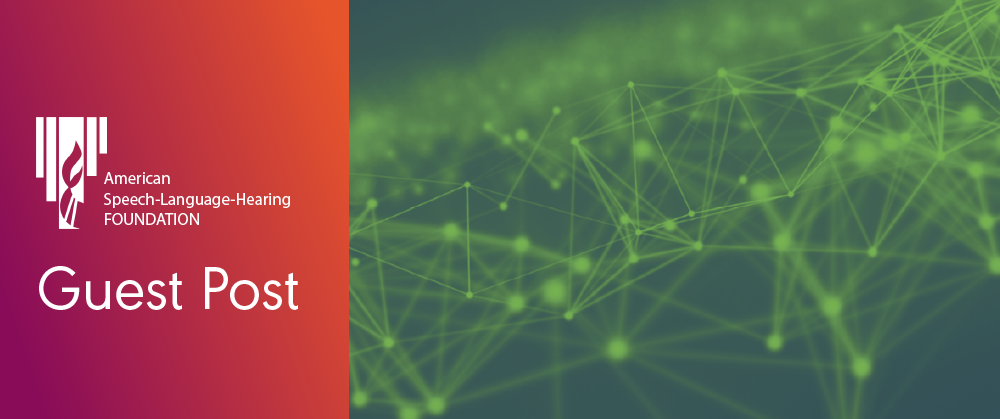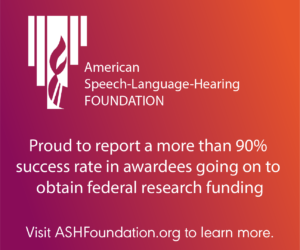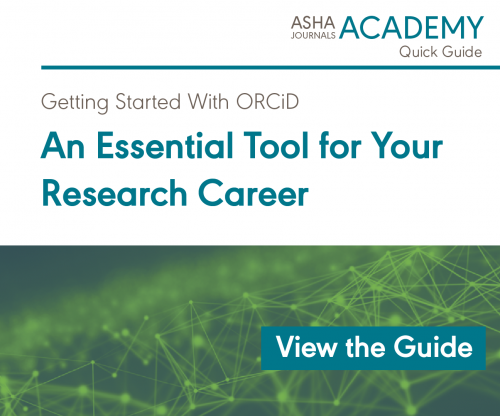We’re writing here today in the first of what we hope to be many collaborations between the American Speech-Language-Hearing Foundation and the ASHA journals program! In this post, we are rolling out a helpful new resource—more on that in just a bit—that will be of interest to both the ASHFoundation and the many current and future researchers who publish their work in the ASHA journals.
There are abundant natural synergies between the ASHFoundation and the ASHA journals program, and by extension the ASHA Journals Academy. The Academy is all about raising the visibility and presence of CSD research and providing scholars in a variety of roles an array of resources to support their endeavors. Likewise, the Foundation is all about empowering innovators and equipping them for future success.
We encourage our funding recipients to submit their research to the ASHA journals for publication, and over time a great many have. So many in fact that it can actually be a project in itself to easily find it all! Thankfully, the switch to online publishing of journals is now making that a lot easier.
All (or nearly all) funding organizations now have a unique digital identifier code that is tracked in a registry. When authors select who their funding sources are during the manuscript submission process, that data then gets attached to the article, which itself has a unique identifier (the “doi” you see so often now on articles).
So, funding info is now pretty well associated with articles, but the last piece of the puzzle is to connect the right authors to both the funding and the articles. That’s where the ORCiD system comes in.
An ORCiD (Open Researcher and Contributor ID) is a unique identifier for researchers. We at the ASHFoundation and at ASHA Journals now strongly encourage researchers to obtain and use an ORCiD. It only takes a minute to set up, but the benefits are extensive. This ASHA Journals Academy Quick Guide will tell you everything you need to know and connect you right to the process for getting an ORCiD.
Working together, the ASHFoundation and the ASHA Journals will increasingly make use of all of these connected sets of information. Linkages made possible by systems like ORCiD will help us tell the story of the paths that awardees and published authors take through their research careers. You might soon see here, for example, a developing collection or a spotlight on Foundation-funded research that is made all the easier to develop through use of such data. And beyond us, research funders at large and publishers of all sorts are using cloud apps to search databases of funding information, patents, policy materials, and more to look for their next promising funding recipient or project partner.
This evolving research landscape is an exciting thing to be a part of, and we look forward to future such initiatives that will help increase the visibility and profile of CSD research. We encourage you to take part by establishing your ORCiD today. The future possibilities are ours to create!









